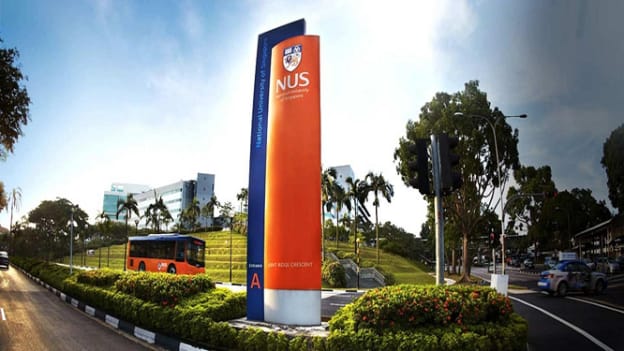National University of Singapore among World’s Most Innovative Universities

National University of Singapore (NUS) is the only university from Singapore to be featured on World’s Most Innovative Universities list issued by Reuters.
An educational institute must be taking steps to expand the field of sciences, identify and build enhanced technology and support the birth of new smart industries and markets.
NUS has a patent success rate of 33.1 percent. It is the ratio of patents granted by an institute to the number of patents filed. The university filed for 459 patents between 2011 and 2016.
The research and higher education institute based in the island nation of Singapore also scored about 42 on the commercial impact scale. Commercial impact measures how research undertaken at an educational institute influence the real world i.e. application of this research in on an industrial level in research and development initiatives.
As an institute of higher education, NUS had a direct impact on the industry. For example, in 2017, NUS collaborated with Alibaba Cloud i.e. the cloud computing wing of Alibaba group and EZ-Link (Singapore’s smart card company) to help achieve the goal of making Singapore cashless. Founded in 1905 with just 23 students, the university students and faculty members are helping the country develop smart technologies that would also go a long way in boosting the Singaporean economy.
It is interesting to see a direct correlation between countries in the APAC region that rule the Asian business world, also rank among APAC’s Most Innovative Universities.
The Chinese government’s efforts to motivate innovation among its universities and a heavy focus on filing patents seem to have paid off. More and more Chinese universities have featured in this list with 27 in 2018 as opposed to 25 institutes in 2017, according to the study.
South Korea accounts for 20 institutes among the 75 in the list of APAC regions’ Most Innovative Universities, Japan accounts for 19, Australia is at 5, Singapore has 2 in the regional list while India and New Zealand have 1 each.
An enhanced quality of higher education directly translates into the creation of a sophisticated workforce. The skills built by students in a university, the professional and knowledge-based expertise developed during the years spent in a higher education institute go a long way in building a strong human capital in the country.

















